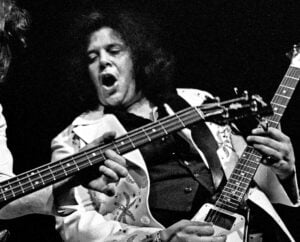On This Day in 1972: Three Dog Night Earned Their Third Billboard No. 1 With a Song Rooted in U.S. History

via davidhertzberg1 / YouTube
A Chart-Topping Hit with a Powerful Message
On September 16, 1972, Three Dog Night reached number one on the Billboard Hot 100 for the third time with their recording of “Black and White.” While the single soared to the top of the U.S. charts, it surprisingly failed to make an impact in the United Kingdom. The song’s success added to the group’s already impressive run of hits during the early 1970s, cementing their reputation as one of the era’s most popular rock bands.
“Black and White” was originally written in 1954 by David I. Arkin and Earl Robinson. The timing of its creation was no coincidence. The writers were inspired by the landmark Supreme Court ruling in Brown v. Board of Education, the decision that declared racial segregation in public schools unconstitutional. The lyrics celebrated equality and the hope that racial barriers could be dismantled through unity and understanding.
View this post on Instagram
From Folk Song to Rock Anthem
Before Three Dog Night recorded it, “Black and White” was performed by several folk artists, including Pete Seeger and Sammy Davis Jr., each adding their own style to the message of harmony. When Three Dog Night decided to include it on their 1972 album Seven Separate Fools, they gave the song a vibrant rock treatment with strong vocal harmonies and upbeat instrumentation.
The band’s arrangement turned the folk tune into a mainstream hit, helping it connect with a wide audience at a time when the United States was still grappling with civil rights issues. The lyrics, which spoke of children of all colors learning side by side, resonated with listeners who hoped for a more inclusive future.
A Lasting Legacy
“Black and White” became the group’s third number-one single, following “Mama Told Me (Not to Come)” and “Joy to the World.” Its chart success highlighted how music could carry a social message while still achieving commercial appeal. Though it never charted in the UK, the track remains a memorable part of Three Dog Night’s catalog and a reflection of the social changes taking place in America during the 1970s.
The song stands as an optimism sparked by the Supreme Court’s 1954 decision and how musicians of different generations used their art to support equality and understanding.













